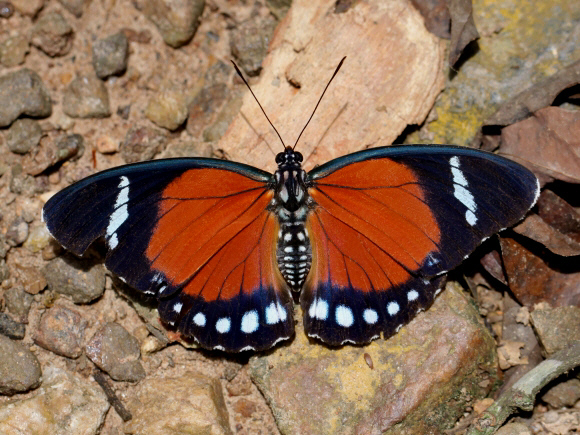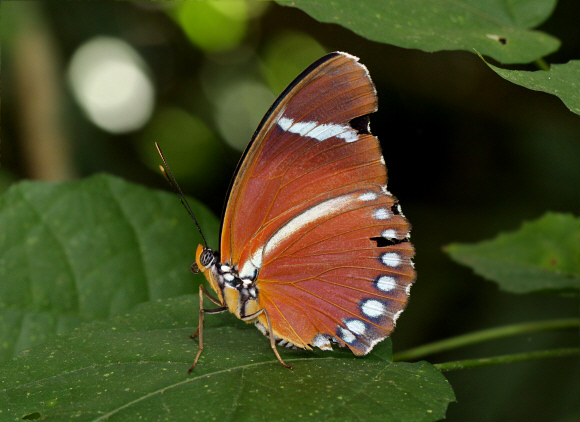
Introduction
The genus Euphaedra comprises of a yet to be discerned number of large and very beautiful forest-dwelling butterflies, all found on the African continent. In 1997 Hecq revised the genus and at that time listed a total of 180 species. This figure is challenged by other workers who believe that many of these are merely local forms or subspecies. However in 2012 Hecq produced a further revision of the eleus species-group, describing an additional 12 species, bringing the total in the genus to 192. When working in the field it is immediately obvious that there are a huge number of specimens that are noticeably dissimilar to any of the insects illustrated by Hecq but it is unclear whether these are examples of intra-specific variation, distinct taxa or hybrids.
All Euphaedra species share a common wing shape. Most have a similar pattern on the upperside – typically the basal areas of the wings ( particularly the hindwings ) have large suffused patches of metallic blue, green, orange or red. Most species also have a cream or orange sub-apical bar. The undersides are usually some shade of yellow or green, marked with black spots and streaks that vary in intensity and configuration according to taxon and locality. Many species including janetta and sarcoptera also have beautiful pink patches or streaks on the underside hindwings.
Euphaedra eleus is one of several red Euphaedra species which mimic day-flying Geometrid moths in the genus Aletis. The latter are noxious, so a bird that has tasted one is deterred from attacking any similarly coloured species.
The butterfly is distributed from Sierra Leone to Congo and western Uganda.
Habitats
This species inhabits closed canopy rainforest.
Lifecycle
The larval foodplants include Deinbollia, Allophylus, Paullinia and Phialodiscus ( Sapindaceae ).
Adult behaviour
Both sexes tend to fly mainly in the dark interior of the forest but can occasionally be found on the ground on forest roads, feeding at fallen fruit.

